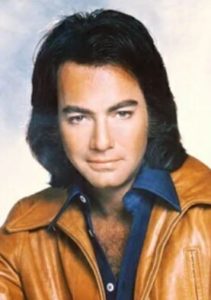The Philanthropist Behind PJ Library
Harold Grinspoon (b. 1929) was born and raised in Newton, Massachusetts to a family of Jewish-Russian immigrants. He had a difficult childhood, struggling with dyslexia and rampant anti-Semitism, poverty, and losing his father at 19. While a student at Marlboro College, he had his first business idea: Putting together some meagre savings, he bought an old laundry machine and put it in the college dorm, charging 25 cents per load. Meanwhile, he worked on an ice cream truck and soon left school to manage a whole fleet of them. After serving in the Navy, Grinspoon bought his first property in 1959. He renovated it and rented out one of the units, and from there steadily built his real estate development business. He founded Aspen Square Management, now one of America’s top-50 private developers, with 15,000 apartments across 16 states. When diagnosed with cancer at age 59, Grinspoon realized he wanted to do something more meaningful with his life. He was particularly troubled by Jewish assimilation and intermarriage. Together with his wife, he founded the Harold Grinspoon Foundation to fund a variety of Jewish causes, and has since donated over $200 million. At one Passover seder, Grinspoon saw how excited his grandkids were to read Jewish books, and came up with the idea of sending a free Jewish book once a month to every Jewish home. Thus, in 2005 he launched PJ Library. Today, PJ Library operates around the world, delivering nearly 1 million free books each month to kids in some 30 countries. PJ Library also delivers popular Arabic-language books to Arab Israeli children. (It’s the largest Arabic book program in the world!) Meanwhile, PJ Library runs weekend and after-school programs, along with over 3000 events a year. The Harold Grinspoon Foundation funds other Jewish programs, too, including Jewish camps and day schools. In 2015, Grinspoon signed The Giving Pledge to donate more than half of his wealth. Grinspoon and his PJ Library have won a number of prestigious awards, including one from the Library of Congress. Grinspoon has been called “the most important Jewish philanthropist you’ve never heard of”. He is also an avid artist and sculptor, and is still very active at 92 years old. Sign up to PJ Library here!
Words of the Week
We are indignant when we are fooled by others but live comfortably with our unconscious desire for self-deceit.
– Rabbi Abraham Joshua Heschel



 Neil Leslie Diamond (b. 1941) was born in Brooklyn to a Jewish family of Russian and Polish heritage. In high school, he sang in the school choir alongside classmate
Neil Leslie Diamond (b. 1941) was born in Brooklyn to a Jewish family of Russian and Polish heritage. In high school, he sang in the school choir alongside classmate